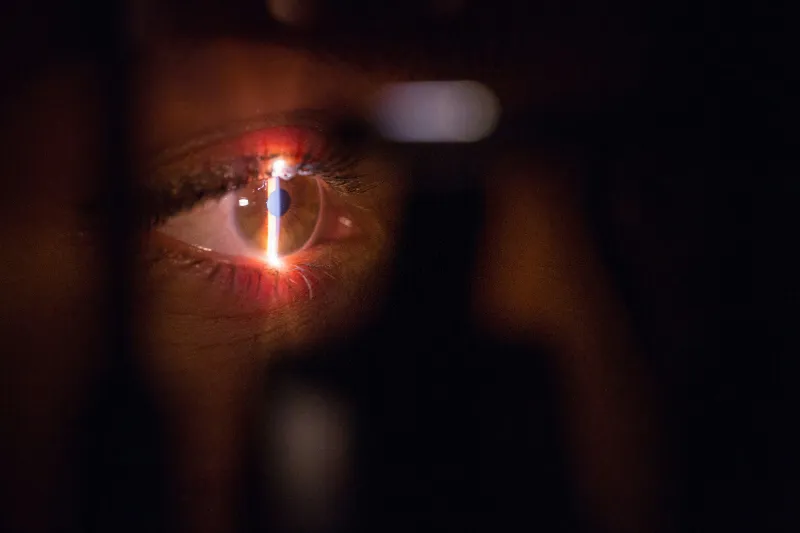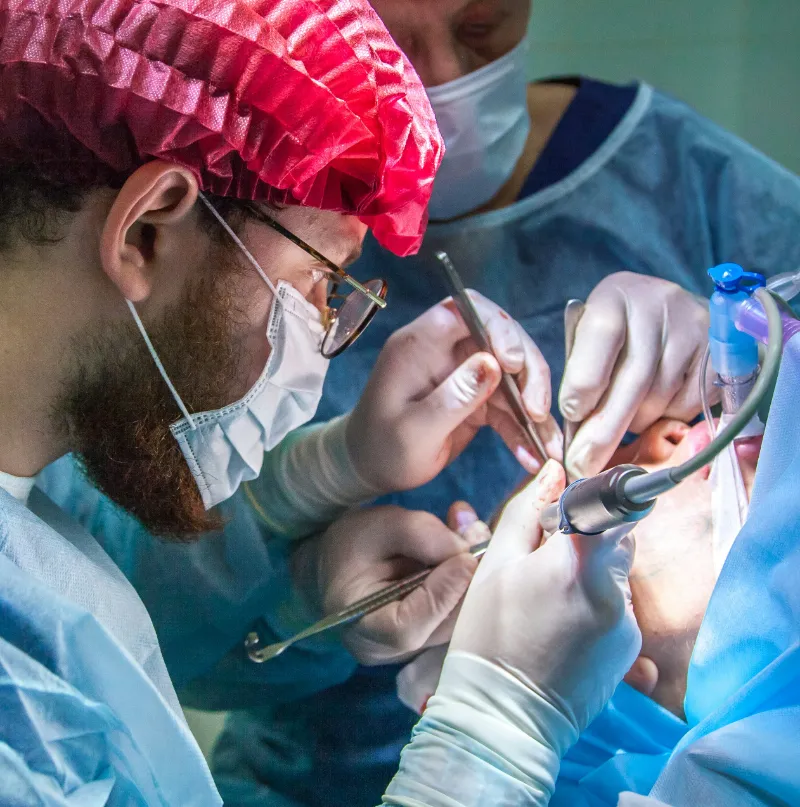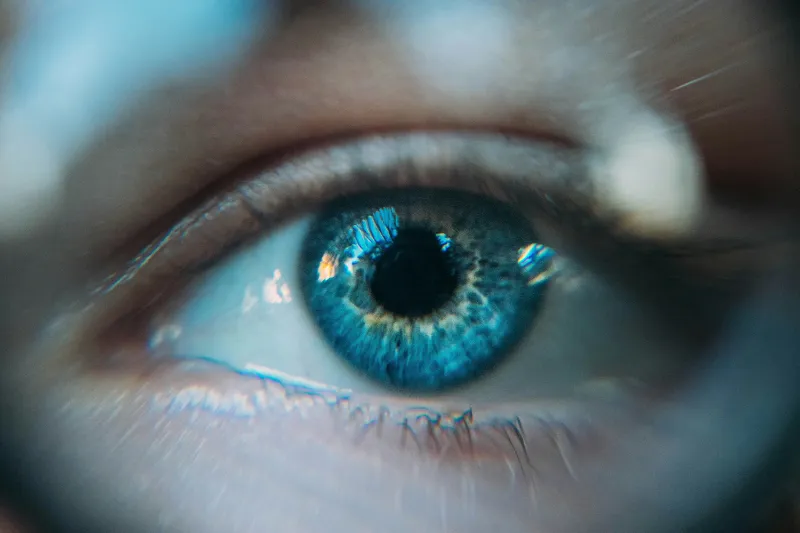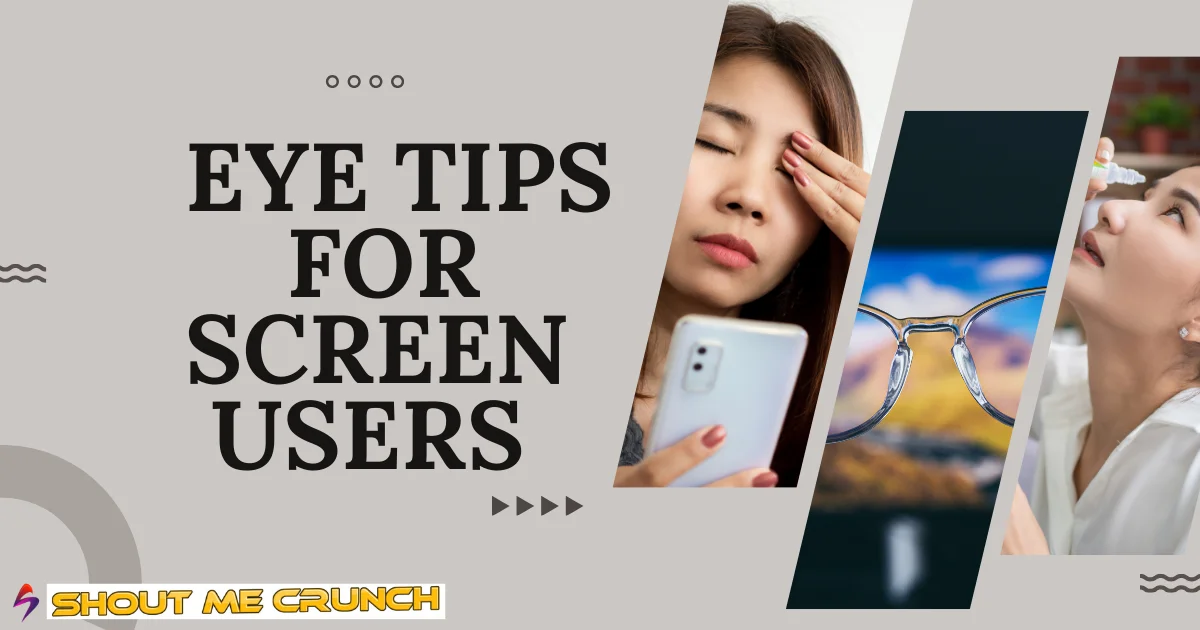If you use screens frequently, you might be worried about the impact that they are having on your eye health, especially if you often find that your eyes are dry and strained or your vision is blurred. Here are some of the top eye tips that you should follow if you are constantly on screens, such as if computers are integral to your job.
Is dark mode screen good for eyes?
The judgment is yet out on whether dark mode helps eye health in the long run. However, it has the potential to reduce strain and tiredness, particularly in low-light conditions. It is instant good for health. Dark mode lowers glare from bright white backgrounds, which can be unpleasant for the eyes. It also minimizes exposure to blue light. Screens release that and can affect sleep patterns. If you use it for a long time, dark mode is effective.

However, some people need help to focus on dark writing against dark backgrounds. That can cause eye strain. In this case, a dark mood is more difficult. Ultimately, your preferences and viewing situations determine the optimal option for your eyes. You can change the screen mode as you need. If you are squinting or feeling uncomfortable using dark mode, consider switching back to light mode. For best eye health, take regular breaks from screens and follow excellent digital hygiene behaviours. Dark mode screen is good for some and bad for others.
Eyes on Screens: Tips for Healthy Vision
Invest in Eye Drops
Many people report that after a few hours of using their laptops, their eyes become gritty, especially if they are thirsty or have been focusing excessively. It is a common issue for people. If so, consider investing in eye drops to keep your eyes moist. It may refresh the eye at a particular time. However, you should be aware that the preservative in these eye drops reacts with some people’s eyes and exacerbates any redness.
For this, you may need to choose preservative-free options. You have to choose the perfect eye drop that fits your problem. However, the effects of these eye drops endure only a few hours. If this is the case, consider going a step further and purchasing gel tears, which form a protective barrier on your eye and are thicker than drops. For this, you may use it twice or three times a day with the suggestion of an eye specialist. They endure longer, so you don’t have to keep putting them in your eyes to get the impact. You might also check for eye sprays, especially effective if you wear contact lenses. You can use drop or lenses, but that depends on you.
Get LASIK Surgery
Having good vision when you use screens frequently can be convenient. It especially creates a problem if you need help reading the information on the screen. In this case, you should consider having LASIK surgery. This operation can give you the 20/20 vision you’ve always wanted, allowing you to live without glasses. You can see all the objects. Although it might not correct your vision fully, and you might still get dry eyes, this surgery will mean that your day will not be skippered if you lose or break your glasses. If not wearing corrective eyewear all the time is appealing, you should look for organizations that offer LASIK near Los Angeles.

Take Breaks
The best step that you can take to protect your vision when you use screens often is to take frequent breaks throughout the day. If you struggle to remember to take these breaks, you might set an alarm on your phone for every 20 minutes. During this break, you should look away from your screen completely, and you might even decide to step outside (with some sunglasses if the sun is shining). This break does not always need to be long, and simply looking away from your screen for a few seconds can help your vision and ensure that you do not notice any permanent effects from your screen use.
Get the Right Equipment
You can also aid your vision by checking that your screen is not too small and that your chair and desk are at the right height. You should turn the brightness to the correct level for you, minimize glare, and look into investing in blue light filters for your screen. Some screens even offer blue light protection to start with, meaning that you can improve both your vision and sleep pattern. There are also many pairs of blue light glasses on the market that could help you and your eyes.
How much screen time is safe for eyes?
There is no one-size-fits-all solution for safe screen usage. However, experts advise prioritizing breaks and reducing prolonged focus. It is better to use less. The American Optometric Association advises the 20-20-20 rule, which states that every 20 minutes, look away for 20 seconds at someplace 20 feet away. This relaxes your concentrating muscles and alleviates eye strain. Always avoid using mobile devices or laptops for unnecessary needs.

Limiting children’s screen time is extremely important. Using screens over time is harmful to children. According to studies, excessive screen time may contribute to the development of myopia (near-sightedness). The American Academy of Pediatrics recommends that babies under 18 months have no screen time and that older children prioritize outside activities while limiting screen time for enjoyment.
Contrary to using mobile phones and playing outdoor games with children. Adults will likely tolerate more screen time, but limiting recreational screen time to less than 2 hours per day is a decent recommendation. Remember to listen to your body and take regular breaks! Take a break from the screen if your eyes feel tired or strained. Natural green scenery is much better for the eye. Walk on the grass and see the green scenery for your good health.
How do you fix eye damage from screens?
Screens seldom cause permanent eye damage. However, prolonged use can cause eye strain and discomfort. But have a good thing behind the scenes. The good news is that these problems are usually transient and can be resolved through healthy habits.
Focus on prevention by applying the 20-20-20 rule: every 20 minutes, gaze aside for 20 seconds at anything 20 feet away. This soothes your eyes and reduces tension. Mark it in your daily routine. Adjust your screen brightness to a comfortable level, and consider utilizing night mode to limit blue light emissions, particularly at night. If dryness is an issue, artificial tears can help. Take a break for a few minutes. It helps you to reduce eye stress.
Consult an eye doctor if you are experiencing recurring issues. They can rule out underlying issues and offer treatment options such as customized glasses or stronger eye lubricants. You can use blue lens glass while using mobile or any device. Remember that taking care of your eyes requires frequent examinations to ensure general eye health. It is more important for your health.
Conclusion
To protect your eye, remember three key takeaways: prioritize regular eye exams, use the 20-20-20 rule, and adjust screen settings for comfort. That helps you to keep your eyes refreshed. Be aware of the importance of eye care, especially in today’s digital world. Consult an eye specialist for personalized advice on maintaining your vision sharp and healthy. Keeping your eye good, you have to talk with a specialist.


